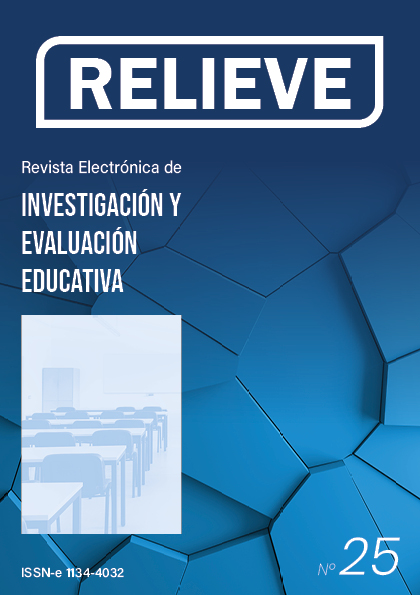Dyscalculia: Clinical manifestations, evaluation and diagnosis. Current Perspectives of educational intervention
DOI:
https://doi.org/10.7203/relieve.25.1.10125Keywords:
Learning difficulties, dyscalculia, Early years education, Primary education, Secondary education, detection, educational interventionAbstract
Learning difficulties and learning disorders are very frequent in schools nowadays, and they have been increasing in the field of mathematics. Such difficulties tend to be associated with other disorders such as dyslexia or Attention Deficit Hyperactivity Disorder (ADHD). The present article aims at deepening our understanding, definition and detection of dyscalculia, along with reviewing current educational treatments. Since 1990, concerns about learning difficulties in the classroom have been made explicit in policies such as the Spanish Law on the General Ordering of the Education System (LOGSE). Likewise, the indicators, symptoms, and prevalence of dyscalculia have been gathered since the publication of the DSM-IV and the ICD-10. Nonetheless, its detection, identification and intervention are below expectation. Features such as the knowledge of its underlying neurobiological basis are fundamental for a posterior psychopedagogical approach. We conclude, first, that we can only rely on a few specific tools for its detection. Second, we highlight the relevance of the detection of its risk factors. Finally, regarding current perspectives of treatment, early detection and the interdisciplinary nature of the interventions are supported
Downloads
Downloads
Published
How to Cite
Issue
Section
License
The authors grant non-exclusive rights of exploitation of works published to RELIEVE and consent to be distributed under the Creative Commons Attribution-Noncommercial Use 4.0 International License (CC-BY-NC 4.0), which allows third parties to use the published material whenever the authorship of the work and the source of publication is mentioned, and it is used for non-commercial purposes.
The authors can reach other additional and independent contractual agreements, for the non-exclusive distribution of the version of the work published in this journal (for example, by including it in an institutional repository or publishing it in a book), as long as it is clearly stated that the Original source of publication is this magazine.
Authors are encouraged to disseminate their work after it has been published, through the internet (for example, in institutional archives online or on its website) which can generate interesting exchanges and increase work appointments.
The fact of sending your paper to RELIEVE implies that you accept these conditions.














